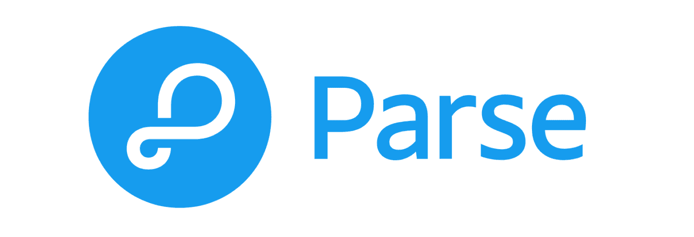
TL; DR: Parse Server is an open-source Backend-as-a-Service (BaaS) platform helping mobile developers build applications quickly and affordably. The framework, acquired by Facebook in 2013 before it was open-sourced, is supported by an active community of innovative developers. Programmers can use Parse to bypass tedious backend-development worries thanks to built-in tools for object and file storage, user authentication, push notifications, and simple third-party hosting solutions through Back4App.
When cake mix first hit the grocery store shelves in the 1930s, many at-home chefs scoffed at the idea of a bag full of dehydrated flour, sugar, and eggs. By the early ’50s, however, boxed cake mixes had become a staple in American pantries, providing unprecedented confectionary convenience.
A similar pattern can be seen in the programming world. Today’s developers can turn to backend-as-a-service (BaaS) solutions — the Betty Crockers of app creation — to bypass tedious data access layer tasks. (To be even more specific, some refer to them as Mobile Backend-as-a-Service, or MBaaS, solutions).
One such platform, Parse, provides developers with an open-source route to streamline object and file storage while delivering features like user authentication and push notifications.

Parse provides the ingredients necessary for a solid development backend.
“Parse’s community-driven, open-source backend helps developers build modern applications faster without starting from scratch,” said Antonio Davi Macedo Coelho de Castro, Core Maintainer and Co-Founder of Back4App, a third-party Parse hosting provider. “Today, there’s just no reason to do that.”
At Back4App, Antonio and his team host open-source Parse instances and store and query relational data through GraphQL, REST, or Parse SDKs.
“At Back4App, we build all of our backend using Parse now,” he said. “I can’t imagine myself building a backend from scratch anymore.”
Today, Parse is supported by an innovative and active open-source community that includes mobile developers, backers, and sponsors. Back4App has donated more than $9,000 to the Parse application development framework since 2017.
“We are a big community, and we work on a daily basis to make sure that we are providing a very reliable, secure and flexible solution,” Antonio said. “Over time, more and more people will inevitably migrate to this new, more efficient development model.”
An Open-Source Project Providing Value to Mobile Developers
Parse was originally developed as a mobile BaaS platform in 2011 by the provider Parse, Inc. By 2012, it had proliferated as hundreds of thousands of mobile developers turned to the platform to streamline their workflows.
Facebook acquired the company in 2013 in an attempt to focus on paid tools and services within the growing mobile app development space.
By 2016, however, Facebook announced that it would shift resources elsewhere and fully retire the proprietary product by January 2017. Following the announcement of the impending shutdown, Facebook and Parse, Inc. made the platform available to the public through open-source code.

Companies like Back4App provide managed hosting services for the open-source platform.
“Facebook attracted a lot of developers to the community, and then we rewrote Parse as an open-source project called Parse Server,” Antonio said. “Right now, you can use Parse in two different ways. You can choose to spin up your own server and go the self-hosting route via companies like AWS, DigitalOcean, Azure, etc., or use Parse-specific hosting services like Back4App.”
Antonio told us that Back4App’s service solution sits on top of Parse in the same way that Parse Inc.’s original hosting solution did in the past.
“We make it easier for developers who are building new projects to get started in a reliable and secure way,” he said. “At the end of the day, developers need to concentrate their efforts on the front end. One app will not be superior to another because of a better user table on the backend — it will more likely be because of a better user-facing forum, etc. The front end is the differentiator.”
Customers agree that Back4App helps eliminate several concerns on the backend.
“The nice thing is that I don’t have to worry about uptime, scalability, or DevOps issues,” said user Joren Winge, CTO at VantageBP, in a testimonial. “Without Back4App, everything would have taken much longer. Back4App is like having a custom dev team that I don’t have to pay for.”
Relational Capabilities via NoSQL Databases
Several competitors have joined Parse in the BaaS space since its inception. But Parse’s well-documented framework, easy-to-use dashboard, software development kit (SDK) options, and flexibility (in terms of the database, server, and application layer) give it an edge over the rest.
“One main benefit is the speed in which you can spin up a new app,” Antonio said. “But, at the same time, Parse can also serve as a NoSQL database, providing relational capabilities on top of Parse Server. We support both MongoDB and PostgreSQL, but most developers use MongoDB.”
Parse’s relational capabilities are developed on the API layer. “This provides a more natural experience compared with some of the other platforms out there because most of them are just object storage, and they don’t have a table concept,” Antonio said.
Other similar market options, such as Firebase, do offer real-time database solutions. But Parse stands out by sparing users the woes of vendor lock-in.
“With Parse, you can choose among different hosting providers,” Antonio said. “You can spin up servers by yourself and at the end of the day not be locked in to our features. The moment you want to customize the way your server handles API calls, you can make the changes, just as if you were to start the whole project from scratch.”
Welcoming New Contributors and Core Team Members
The future looks bright for the open-source community at Parse, as well as the hosting company Back4App.
The host continues to power the development efficiency of thousands of companies worldwide,
Parse, on the other hand, is actively recruiting new contributors and team members. And the software’s user base continues to expand rapidly.
“The community is alive and growing, and actually in terms of installations, as well,” Antonio said. “In the past 12 months, the number of installations of both Parse Server and the Parse JavaScript SDK have increased by more than 50%.”
When it comes to new features and ongoing development, Parse recently launched support for GraphQL, an open-source data query and manipulation language developed by Facebook for APIs. Historically, Parse has only supported the REST API. Now, the platform will support both.
“The introduction of GraphQL opens up a lot of possibilities because users can use any GraphQL client or framework on top of Parse,” Antonio said. “We launched an initial version last year, and we still have a lot to do.”
Parse is also building a layer on top of its JavaScript SDK using React, a JavaScript library for building user interfaces. “Using this technology, we are modernizing the way developers will be able to view React applications on top of Parse,” Antonio told us.
These and other planned upgrades, including increased security measures, come partly from feedback from the community.
“We have a pretty active community on our forum, and we put their input to good use,” he said. “That’s the beauty of open-source software development — it’s continuous and, therefore, always improving the product.”
HostingAdvice.com is a free online resource that offers valuable content and comparison services to users. To keep this resource 100% free, we receive compensation from many of the offers listed on the site. Along with key review factors, this compensation may impact how and where products appear across the site (including, for example, the order in which they appear). HostingAdvice.com does not include the entire universe of available offers. Editorial opinions expressed on the site are strictly our own and are not provided, endorsed, or approved by advertisers.
Our site is committed to publishing independent, accurate content guided by strict editorial guidelines. Before articles and reviews are published on our site, they undergo a thorough review process performed by a team of independent editors and subject-matter experts to ensure the content’s accuracy, timeliness, and impartiality. Our editorial team is separate and independent of our site’s advertisers, and the opinions they express on our site are their own. To read more about our team members and their editorial backgrounds, please visit our site’s About page.

